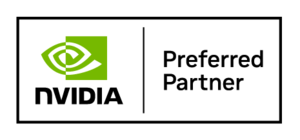Difference between revisions of "OpenGL Accelerated HTML Overlay/Getting Started/Building HTML Overlay"
(→OpenGL) |
(→Dependencies) |
||
| Line 15: | Line 15: | ||
* EGL | * EGL | ||
* GLFW (optional) | * GLFW (optional) | ||
| − | In the following sections you can see how to install the dependencies mentioned before. | + | In the following sections you can see how to install, in Debian-based systems, the dependencies mentioned before. |
| − | |||
=== OpenGL === | === OpenGL === | ||
Revision as of 14:34, 29 June 2023
|
|
| OpenGL Accelerated HTML Overlay | |
|---|---|
 | |
| Basics | |
|
|
|
| Getting Started | |
|
|
|
| Library User Manual | |
|
|
|
| GStreamer | |
|
|
|
| Examples | |
|
|
|
| Performance | |
|
|
|
| Contact Us | |
|
|
Contents
Dependencies
HTML Overlay has the following dependencies for building from source:
- OpenGL. See more about OpenGL in this link: OpenGL
- GTK+. You can see more about GTK+ in this link: GTK+.
- Webkit2GTK+. You can see more about it in the following link: Webkit2GTK+
- GLEW
- EGL
- GLFW (optional)
In the following sections you can see how to install, in Debian-based systems, the dependencies mentioned before.
OpenGL
To install OpenGL, please use:
sudo apt install mesa-utils
sudo apt-get install freeglut3
GTK+
To install GTK+:
sudo apt-get install build-essential libgtk-3-dev
CUDA L4T pacakge (NPPI library)
The Jetpack default installation will flash and install all the necessary CUDA packages, including NPPI library. This section describes how to perform a manual installation, which is typically __NOT__ needed
Installation guide for CUDA:
1. You will need to know which distribution version you are using:
lsb_release -a
2. Depending on your platform follow the next instructions:
Jetson platforms
- Depending on what Jetpack release you have installed on your Jetson, you might want to download the corresponding CUDA Toolkit version, including NPPI library. In the following table you can see which one you need. Click on the link and follow the selection menu.
| Jetpack Release | CUDA Toolkit version |
|---|---|
| JetPack 4.x | Get CUDA 10.2 Toolkit |
| JetPack 5.x | Get CUDA 11.4 Toolkit |
x86 platforms
- For x86 platforms, go to this link: CUDA Toolkit 12.1 download archive and follow the selection menu.
3. Select the version depending on the lsb_release command executed above. We recommend using the deb (local) option for the installation.
4. Once you have selected your system setup, NVIDIA will show you the installation instructions for those requirements.
GstCUDA
GstCUDA is another RigdeRun product. This product is required for CUDA ISP if you want to use it with GStreamer applications. You can see more about this product in this link: Get GstCUDA
Custom v4l2src element
To capture from a camera in raw format with a bits per pixel different from 0, you may require to recompile the GStreamer Plugins Good. Please, follow these steps.
Documentation (optional)
For the documentation, consider the following dependency:
- doxygen
Please, install it using (in Debian-based systems):
sudo apt install -y \
doxygen \
Meson building system
At the building system level:
- ninja-build
- python3-pip
- pkg-config
- meson
Please, install them using (in Debian-based systems):
sudo apt install -y \
python3 \
python3-pip \
ninja-build \
pkg-config
The process should be similar in other systems, not based on Debian.
Building the project
Once fulfilled the dependencies, you can run a default compilation with:
meson build --optimization 3 --prefix /usr -Denable-docs=disabled -Ddeveloper-mode=false
ninja -C build
sudo ninja -C build install
For additional customization, you may refer to the following table of options:
| Configure Option | Description |
|---|---|
| -Ddeveloper-mode=false | Disable developer mode. Enabled by default. |
| -Denable-docs=disabled | Skip documentation generation. Enabled by default. |
| -Denable-gst=disabled | Skip building for GStreamer elements. Enabled by default. |
| -Denable-tests=disabled | Skip building tests. Enabled by default. |
| --prefix /usr | Set the installation path of the library. |
| --optimization 3 | Set the optimization level to the maximum |
Table 1. CUDA ISP configuration options (Meson)

